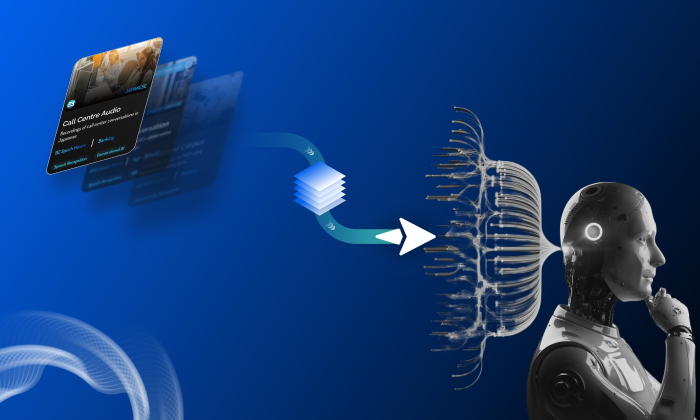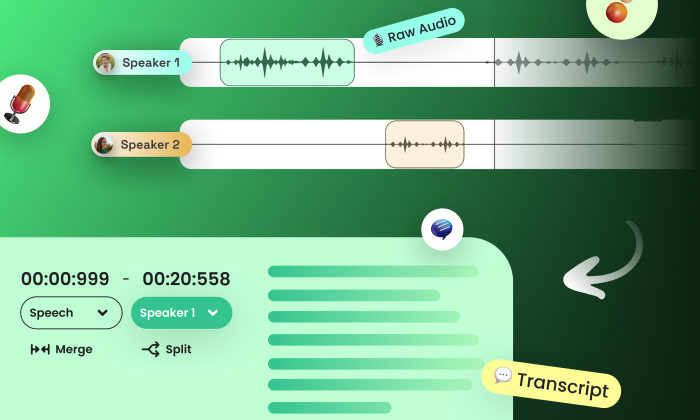Which medical specialties are represented in doctor dictation datasets?
Speech Recognition
Healthcare
Medical AI
When examining doctor dictation datasets, it's vital to understand the diversity of medical specialties they encompass. Recognizing this range boosts the effectiveness of AI applications in healthcare by ensuring datasets are robust for training advanced machine learning models.
Doctor dictation datasets represent a multitude of medical specialties. Each one offers unique terminology and clinical scenarios, essential for developing sophisticated AI models. Here’s a breakdown:
- Internal Medicine: Internal medicine focuses on adult diseases and chronic conditions. Datasets in this specialty include detailed histories and management plans, crucial for clinical decision support systems. An AI tool here could streamline the diagnosis of chronic illnesses.
- Family Medicine: Family medicine offers comprehensive care to all ages. Datasets capture diverse encounters, from routine check-ups to chronic disease management, reflecting a holistic patient care approach. AI models trained on such data improve patient record accuracy.
- Pediatrics: Focusing on child health, pediatric datasets cover growth and development. They are vital for AI tools targeted at understanding developmental milestones and family dynamics, enhancing pediatric care automation.
- Obstetrics and Gynecology: This specialty’s datasets cover prenatal care, labor, and postnatal assessments. They are essential for AI applications in maternal-fetal medicine, assisting in prenatal diagnostics and pregnancy monitoring.
- Orthopedics: Orthopedic dictations detail musculoskeletal conditions and surgeries. These datasets help in training AI models to understand complex surgical language, improving post-operative care recommendations.
- Cardiology: Cardiology datasets are rich in terms related to heart diseases. They are crucial for cardiovascular AI applications, such as heart disease risk assessment tools, enhancing patient treatment plans.
- Dermatology: Covering skin conditions, dermatology datasets are key for AI systems aimed at skin disease recognition. This helps in early detection and treatment recommendations for dermatological conditions.
- Neurology: Addressing nervous system disorders, neurology datasets require precise language. AI models trained on this data assist in diagnosing complex neurological conditions, offering therapeutic insights.
- Psychiatry: Psychiatric dictations involve mental health topics. Datasets here are crucial for AI tools that interpret psychological evaluations, aiding in mental health management.
- Emergency Medicine: Emergency medicine datasets capture rapid, critical scenarios. They are essential for training AI systems in urgent care settings, enhancing real-time decision-making capabilities.
Importance of Specialty Diversity in AI Training
- Comprehensive Training: Diverse datasets expose AI models to various clinical scenarios, enhancing their ability to generalize across medical contexts.
- Improved Accuracy: Training on varied specialties increases AI systems' accuracy in medical transcription and documentation.
- Real-World Application: Diverse datasets ensure AI tools can handle real-world patient care nuances effectively.
Key Considerations in Creating Diverse Medical Datasets
- Speaker Diversity: Including clinicians with varied accents and backgrounds enhances speech recognition models.
- Audio Quality: High-quality recordings (e.g., 48 kHz, 24-bit) ensure accurate transcription, even with background noise.
- Annotation Standards: Consistent annotation, including medical NER, ensures datasets are comprehensive for AI model training.
In summary, understanding the representation of various medical specialties in doctor dictation datasets is key to developing robust AI applications in healthcare. FutureBeeAI is equipped to provide these diverse and detailed datasets, ensuring that your AI solutions are accurate and effective, ultimately enhancing patient care.
FAQs
Q. What types of data are included in doctor dictation datasets?
A. Doctor dictation datasets consist of audio recordings of clinicians dictating clinical notes, complete with transcripts and rich metadata, including specialty and environmental context.
Q. How does specialty diversity affect AI model training?
A. Specialty diversity enhances AI models by exposing them to a wide range of medical terminology and scenarios, improving their accuracy in processing medical language across contexts.
What Else Do People Ask?
Related AI Articles
Browse Matching Datasets
Acquiring high-quality AI datasets has never been easier!!!
Get in touch with our AI data expert now!








